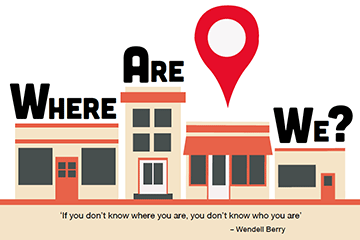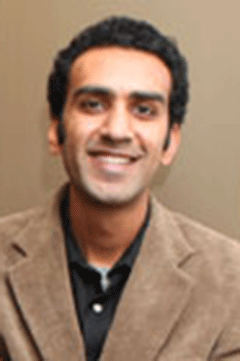
11/17/2015
 |
|
| Khuram Hussain |
Khuram Hussain, an assistant professor of education at Hobart and William Smith Colleges, thinks educators need to take a more expansive approach to how students carry out civic service in city neighborhoods, on Thursday, Nov. 19.
His talk, “From Charity to Solidarity: Rethinking Student Service in Urban Communities,” will begin at 7 p.m. in Corey Union Fireplace Lounge.
The event continues the yearlong series exploring the role that local communities play in the greater society’s achievement of economic health, environmental resilience and overcoming inequalities of all types.
The lectures, film screenings and artistic programs and other events themed on “Where are We?” are presented by the College’s Cultural and Intellectual Climate Committee (CICC). The programs are free and open to the public.
From tutoring kids to stocking pantries, “service to the community” is now a cornerstone of the college experience.
“Yet it is criticized for being little more than community charity,” said Hussain, who teaches a variety of courses on the history of education with a particular focus on civil rights education, equity and access.
“Moreover, in an era of economic dispossession, mass school closings and rising urban protest, college campuses and their surrounding communities need more from each other than charity,” he said.
Hussain will explore the radical possibilities of service learning as place-based, democratic and mutually empowering for students and community members.
Specifically, a yearlong urban education project titled Tools for Social Changes examined as a model of service that focuses on intergroup dialogue, collaborative learning and community organizing in order to build life-changing student-community alliances.
Ultimately, the talk outlines practical and ethical considerations for pre-professional students to use urban institutions to work in solidarity with urban communities.
Hussain’s scholarly interests include the history of the Black press, religion and education, and culturally relevant teaching.
By holding an annual series on a different intellectual theme, the CICC committee aims to generate common topics of discussion and to establish traditions of intellectual discourse on campus. The committee encourages faculty and staff to infuse the theme into their course curricula, engage in classroom discussions, foster debate around the theme, and propose campus events or speakers on topics connected to the theme.
The series also features four “common read” texts selected for departments and programs across the campus to read in advance. The suggested reading materials include sociologist Gerald Grant’s book, Hope and Despair in the American City, Will Allen’s The Good Food Revolution, Naomi Klein’s This Changes Everything, and Aldo Leopold’s Sand County Almanac.
The “Where Are We?” series, which continues next spring, is sponsored by the Campus Artist and Lecture Series, the Division of Academic Affairs, the President’s Office and the Cortland College Foundation.
For more information, contact CICC co-chair and Associate Professor of History Scott Moranda at 607-753-2052.